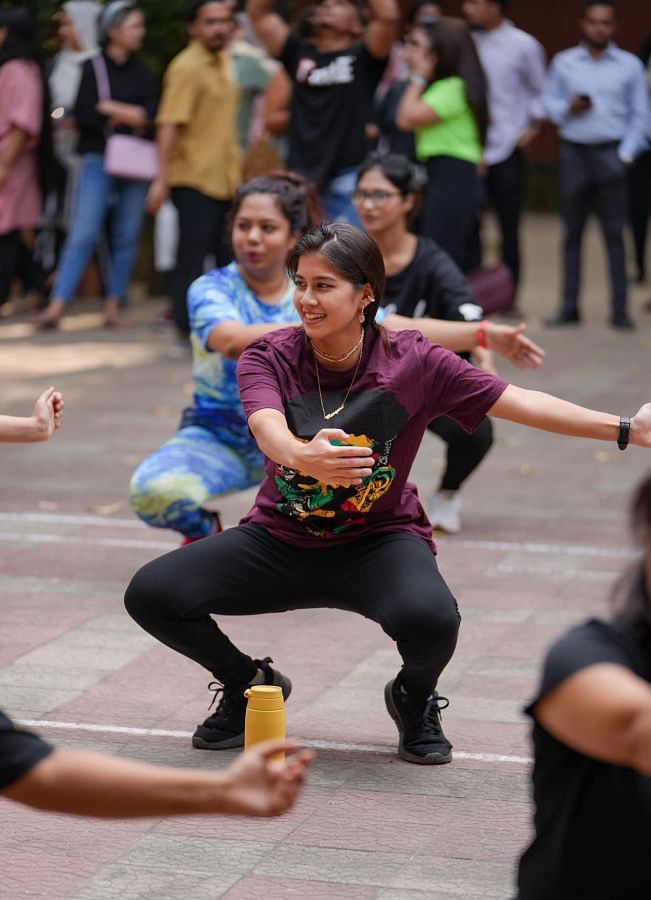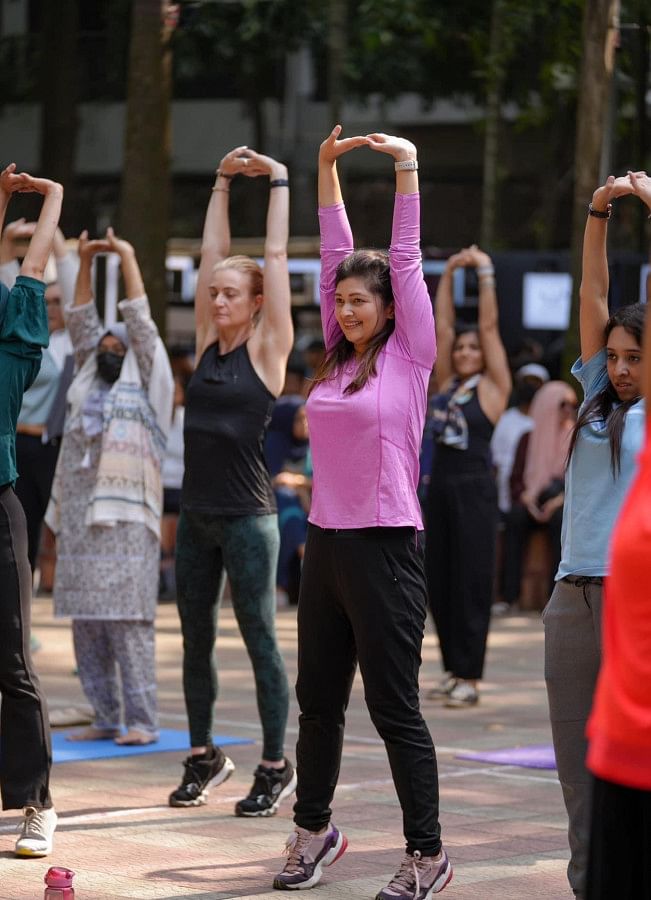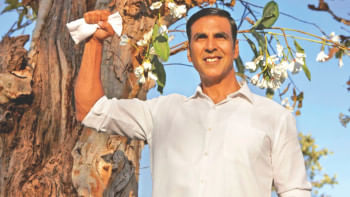Imagine entering a room where vibrant Latin beats, Bollywood tunes, and Arabic rhythms create an electrifying atmosphere. As the music plays, the space transforms into a dynamic dance floor. This is not just any dance party, it's a Zumba class! An exercise increasingly gaining popularity across Bangladesh.
Created in the 1990s by Colombian dancer, Alberto Beto Perez, Zumba was relatively unknown in Bangladesh until the mid-2010s when pioneering instructors introduced it to Dhaka's fitness enthusiasts.
One of them, Saiyedur Rahman Ayan, an internationally licensed Zumba Fitness Instructor with a robust background in dance and choreography, shares his journey: "I've always been passionate about dance. After realising a stable career solely through dance was challenging in Bangladesh, I turned to Zumba."
He adds, "Inspired by Zumba Fitness videos and with encouragement from my father, I trained abroad and became a licensed Zumba instructor, launching my classes initially for expats at local clubs."

Why Zumba?
Zumba's effectiveness lies in its unique blend of physical exertion and dance party atmosphere. Unlike traditional gym routines, a Zumba class is a dynamic social event. Instructors lead participants through dance moves set to a pulsating mix of Latin beats like salsa, merengue, and reggaeton, with a sprinkle of Bollywood and Arabic tunes to cater to local tastes.
Ayan explains, "It's an all-encompassing workout – cardio, muscle conditioning, balance, and flexibility. Zumba is based on dance and Bangladeshis love to dance. It's more than just exercise! I would call it a lifestyle, a joyous escape from the daily grind."
His classes are designed to be engaging and inclusive, allowing participants to enjoy themselves while getting a rigorous workout, perfect for all fitness levels.
The health benefits of Zumba
Zumba offers numerous health benefits, making it particularly appealing in a country where urban lifestyles can lead to physical and mental stress.
"A one-hour Zumba class can noticeably improve physical health by burning calories, toning the body, and boosting cardiovascular health," Ayan highlights. Moreover, it's an excellent stress reliever, improving mental well-being and encouraging a more active lifestyle among participants.
The dynamic and intensive nature of Zumba makes it an effective tool for burning calories. A typical hour-long session can burn between 500 to 800 calories, depending on the intensity of the moves and the individual's body weight and fitness level. This makes Zumba an appealing option for weight management and fat loss.

Boosting self-esteem and confidence
The energetic and fun nature of Zumba helps participants feel more positive about themselves and their bodies, empowering all to take on other challenges in their lives with increased confidence.
Most importantly, Zumba offers a safe and welcoming space. Here, participants, especially women, can express themselves freely, enhancing both their physical health and social freedom.
"Zumba has been transformative for many of my female students, boosting their confidence and sense of well-being. The psychological uplift that comes from Zumba is remarkable. It's not just about burning calories; it's about elevating mood and combating stress," Ayan notes.
All in all, Zumba is designed to be inclusive, accommodating people of all ages, backgrounds, and fitness levels. This inclusivity ensures that everyone can participate and benefit from the empowering effects of Zumba, regardless of their physical ability or previous exercise experience.
Looking ahead
Despite its growing popularity, Ayan faces challenges, particularly in expanding Zumba's reach beyond Dhaka. "While Zumba is growing, accessibility is limited outside the capital. I plan to change this by offering local instructor training after completing my Zumba Education Specialist course," Ayan discusses his plans.
This initiative aims to make Zumba accessible nationwide, fostering a healthier, more active population. Ayan also addresses the issues with unauthorised Zumba classes, emphasising the importance of proper training for instructors. "
"I see a future where Zumba is a mainstream fitness activity supported by trained instructors in every district of our country," he concludes.
Photo: Courtesy











Comments